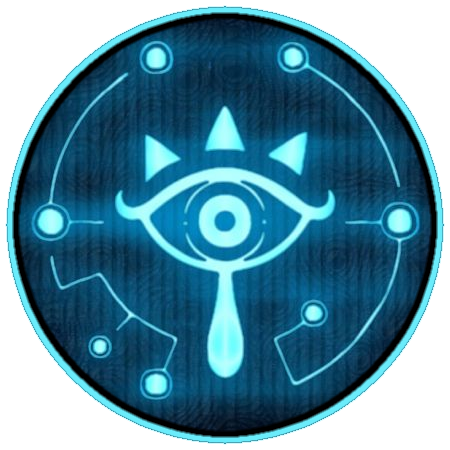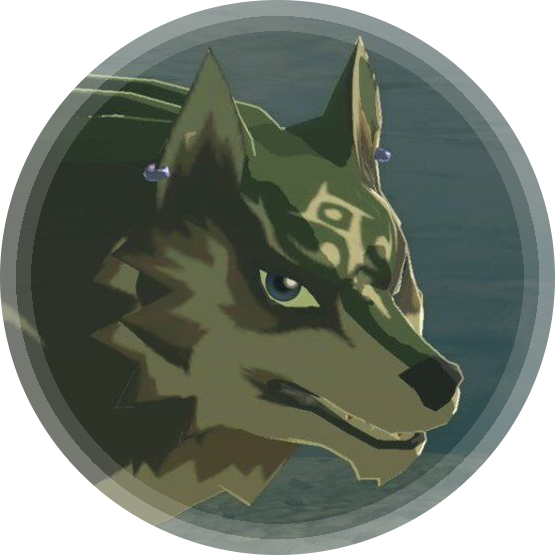I’ve heard how the English translations changes and alters the dialogue in a way that their personalities actually changes quite a bit from what was suggested in Japanese. I want to know if you guys have such experiences with the localization, especially if you played the game with different language settings.
German here. There are at least two major differences that stick out like a sore thumb.
Finley and Sasan:
-
In the English localization, they’re basically a couple despite the weird age difference thing (she’s allegedly older than him, but still looks like a toddler, and when Zora age slower then she IS still a kid by the standards of her own race etc.). They’re calling each other darling and sweetheart and soulmate and the thing that gets dumped into the river is flat-out called a love letter.
-
In the German version, Fine (Finley) just wants someone to go on adventures with and is cranky that the adults won’t ler her. Sasan happens to think she’s pretty cool for her age and promises her mother to keep an eye on her while they go explore. No creepy “love” stuff, no “I didn’t have my growth spurt yet but I’m totally an adult, trust me bro” thing, just an adult friend for an actual child who wants to make sure she doesn’t get hurt while playing outside.
The funny thing is that everyone automatically assumes it is the Japanese “thousand year old goddess in a child’s body trope” … but the crankend-up-to-eleven romance was ADDED in the English translation and they’re still only pen pals in the original. An analysis from reddit that I blatanly stole:
I think this whole quest is very interesting, but I just can’t get behind it, because the context of the quest is so drastically different in the japanese version and english translation.
It starts with finley calling the letter “love letter” in the english version, while in japanese it’s just a plain old “メッセージボトル” “letter in a bottle”. That’s a HUGE diffrence.
Then there is the option “A letter?” when you speak with finley after she has thrown the letter inside the river.
In the english version she goes on and on an and on about, how wonderful that guy must be and how she hopes, that he is as wonderful as he describes, all in a very lovestruck way. Then she says something that’s not even present in the japanese version. The whole thing about her concerning herself with him being okay with her being older, wiser and a Zora girl and talking about keeping an open mind when it comes to love, is not present in the japanese version. She never says she is older or wiser and she never mentions anything about love. The conversation ends with her saying:
“「筋肉ムキムキの冒険者だ」って お返事には書いてあったのですが いつも繊細な文章なので きっと素敵な方なんだろうな って思うんです” translating roughly to: “He wrote “I’m a very muscular adventurer” but his writing is always so delicate, so I think, that he must certainly be a very wonderful person”
That’s where the japanese one stops.
Now we come to Sasan. There are also some glaring changes to his dialouge, that change the whole context of the quest, which in general is: Finley’s parents always being busy and her being lonely, wanting to find a friend. That’s what one can infer from her second option of dialouge.
Sasan also calls the “love letter” “letter in a bottle” in the japanese version. He also refrains from calling Finley a “lovely Zora” and just says “The sender seems to be a female Zora named finley”. He is also not “dying to meet her” he says “だから 会いに行きたくてもどにも腰が重くてね・・・” “Even if I wanted to meet her, I’m a bit hestitant…”, in reference to him lying to her.
The text after that is radicaly different as well. In the english version he is devestated, had he known, he would fall for her, he never would have lied to her. Link supports him saying “Love reigns supreme”.
In the japanese version he says “しまったなぁ こうなるなら 嘘書くじゃなかったよう・・・” “Now i’ve blown it. If I had known it would come to this (this being her wanting to meet him), I would have never lied…” Link supports him saying “心が大事” very roughly translating to “Your inner values matter”, because the concept of 心 is very broad in japanese.
And while he says, in the japanese version, he will run all the way to the Zora domain for a little bit of training, he doesn’t mention trying to get really really buff on the way for her. He just wants to start practicing what he preaches in the japanese version.
When talking to the two in the village, that’s the first time the two texts kind of resemble each other. Finley does indeed call Sasan her “運命の人” which can be translated as “Soul mate”. It could hint at her really thinking of him in a loving way in the japanese version, even if that was not established beforehand, or it could, more likely, reference the folk tale that says that if a person finds her letter, she will have great luck her entire life, kind of hinting again, at something more romantic. Even then, those hints are really subtle and could be seen either way, them being friends, heavyly implied, or them becoming lovers, very very unlikely but still subtly implied.
That’s where the similarities start and end, as, shortly after that, Finley tells Sasan to work out for her, because he has promised HER muscles after all. In the japanese version she says "ササノ君! 泳いだり ガケ登りしたりして もっと筋肉モリモリになってね!“Sasan! You have to swim and climb more cliffs, so you become more muscular, 'kay!”, again, she kind of says that because the two of them want to go on adventures, so it kinda makes sense, why he has to become a bit buff.
Sasan’s answer to that marks the final big difference. While in the english version he wants to try his best for his “darling” (Finley) in the japanese version he just says “う うん・・・がんばるよ・・・” “m…mh… I will try…”
I think it is very interesting to see, that the Tree House of America choose to kind of take those subtle hints, that could be seen as something romantic, ran with it, but then always came back and justified it, like with Finley and Sasan HAVING to mention that she is sooooo much older and wiser than him. I personally don’t have something against the “old soul in a child’s body trope”, but I generally assosiated it as japanese trope and was shocked to find out, that, in this case, it’s an english plot line exclusive. Make of that what you want xD
Other comments also imply that the romance is absent in the spanish, french, russian and italian versions, but since I speak neither of these languages fluently, I can not personally confirm anything.
Another example: Revali
-
In the English localization he’s just flat-out a jerk that pokes fun at Link at every opportunity and thinks he’s better than anyone else. He’s delightfully snarky and I think the VA did a very good job, but it still seems as if this character’s main motivation is his superiority complex and nothing else.
-
In the German version, his motivation is a bit different. It is made clear that he was the only one of the Champions starting from humble beginnings (everyone else is royalty, he’s “just” some archer) and had to work hard to develop his skill instead of just inheriting it like the others, and he’s kinda pissed that everyone takes their blessings for granted and seems to have no motivation to develop their skills further or even actually use them. He feels more like the only kid in a group project actually wanting to do the work while the others sit around and goof off instead of doing the assignment, and the frustration shows.
Him teasing Link falls into that category as well, but not because he wants to belittle Link and stroke his own ego, but because Revali thinks that Link, too, just takes for granted that he has a cool powerful sword and doesn’t seem to have any motivation to use its full potential.
His dialogue isn’t hurtful or condescending at all. It’s more of a “we are a team so please start to pull your own weight already instead of relying on others all the time” thing. A little frustrated at times, but overall supportive and loyal.
Some examples from the cutscenes/dialogue:
-
When Revali hands over “Revali’s Gale” to Link on Vah Medoh, his dialogue in English is: “It’s time to make preparations for Medoh’s strike on Gannon - but only if you think you still need my help while you’re fighting in Hyrule Castle. Feel free to thank me now!” and “Don’t preen yourself just for doing your job”.
-
In German he says: “Wenn du dann in Schloss Hyrule mit ihm [Ganon] kämpfst, kannst du auf unsre Hilfe zählen. Ich hoffe du weisst das zu schätzen! Gibt doch noch ein paar Sachen zu tun, oder?” (Then, when you’re fighting against him in Hyrule Castle, you can count on our support. I hope you appreciate that. We still have unfinished business to take care of, remember?)
-
then a little later while Revali is standing on top of Medoh, looking at the castle: “After all these years I simply must admit the truth … guess I was wrong about how lucky he would be.”
-
same dialogue in German: “So langsam muss ich zugeben dass er doch gar nicht schlecht ist. Er ist von uns beiden der Stärkere. Link - du bist dr Schlüssel und warst es immer.” (“I have to admit that he isn’t as bad as I thought. He’s the stronger of us two. Link - you’re the key and always have been.”). He finally acknowledges Link’s skill and even sounds proud about it, instead of snarkily claiming that the kid just got lucky again.
There are more examples like these but the comment is already way too long as it is, so 'Ill be leaving it at that.
-
There is also at least one major translation error that’s only present in the English version. In the final boss battle, Zelda says that Ganon has “given up on reincarnation and assumed his pure enraged form”, implying that the reincarnation cycle has been broken and there will be no more Ganons after this fight.
In all other languages including the original, it is some variation of “his obsessive refusal to give up on reincarnation turned him into this monstrosity”, which implies the exact opposite. No matter how often you kill him, he just won’t let go, ever - even if it means to turn into a mindless beast. He WILL try to survive and revive, no matter the cost.
I guess the translator in question got a little confused with the double negative (Ganon fiercely does NOT want to NOT reincarnate = he fiercely wants to reincarnate).


